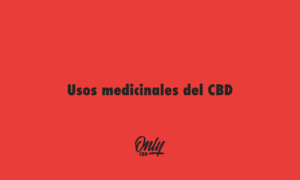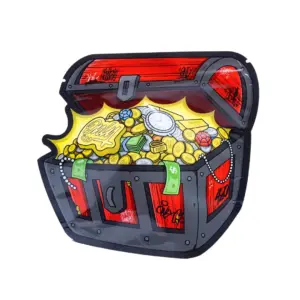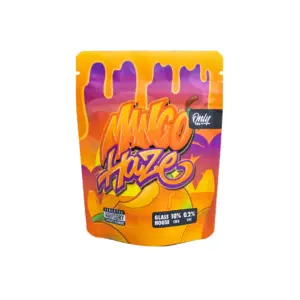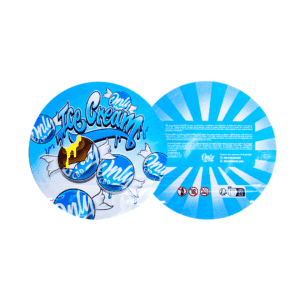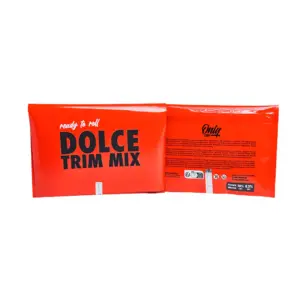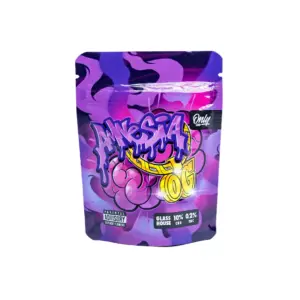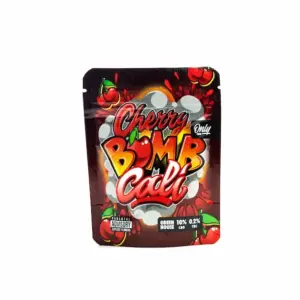Could cannabidiol be an innovative therapy to replace or teach steroid use?
Most of us have been prescribed steroids at some point in our lives. They're often the preferred option for treating sudden bouts of inflammation, allergies, or when a doctor simply doesn't know what to give a patient. Their immediate effects can seem miraculous. (Oh, wow, I suddenly have so much energy, my appetite is back, and my mysterious rash is gone.) But long-term steroid use comes with a host of side effects.
Enter cannabidiol (CBD), an unlikely contender for a novel steroid-sparing treatment of the future.
THE WORLD IS SAVED FROM STEROIDS
After its first recorded use for rheumatoid arthritis in 1948,1 Corticosteroids (steroids) quickly became the mainstay immunosuppressive treatment for patients with systemic inflammatory conditions or to prevent rejection after organ transplants. Their effects were so transformative that Dr. Philip Hench, Edward Calvin Kendall, and Tadeus Reichstein received the 1950 Nobel Prize in Physiology or Medicine for their discovery of the hormone cortisone and its clinical application in rheumatoid arthritis.
To please the crowd with patients, doctors often overprescribed steroids. Soon, a link between steroids and increased morbidity in patients became evident, and researchers began to find "steroid-sparing" immunosuppressive drugs. That said, steroids are still prescribed to this day (my dog even received a small dose for a mysterious itch in his right ear), although most doctors limit this to short periods of time.
There's no way out of jail with steroids, which can cause unpleasant and sometimes dangerous side effects.
WHAT ARE STEROIDS?
It was Dr. Philip Hench who first postulated that steroids, hormones produced in the adrenal glands, relieve the pain associated with rheumatoid arthritis. With the development of corticosteroid medications such as cortisone, hydrocortisone, and prednisone, which mimic our endogenous steroids, a new and effective way to reduce inflammation in the body was discovered.
But there is no get-out-of-jail-free pass for steroids, as their use is often accompanied by side effects2 unpleasant and sometimes dangerous side effects. These include glaucoma, cataracts, fluid retention, high blood pressure, mood swings, weight gain, diabetes, etc., increased risk of infections, osteoporosis, suppressed adrenal gland function, thinning skin, and slower wound healing.
Consequently, doctors only prescribe steroids as a short-term solution, a measure considered relatively safe. Therefore, steroids are commonly given to patients with sudden flare-ups in autoimmune conditions such as Crohn's disease when short, acute immunosuppression is required.
However, it's not just the side effects of steroids that can be problematic for patients. Stopping steroids, particularly when a patient has been prescribed high doses in the short term or lower doses for a longer period of time, can lead to the "steroid withdrawal syndrome»3 This happens when the body has become dependent on “pharmaceutical” steroids, leading to its own endogenous production through the hypothalamic-pituitary-adrenal (HPA) axis to weaken and align.
As such, patients should not stop taking steroids suddenly. Instead, the dose should be gradually reduced, otherwise symptoms such as weakness, fatigue, decreased appetite, weight loss, nausea, vomiting, diarrhea, abdominal pain, and headaches may occur.
STEROID WITHDRAWAL
Eve Roginska, a London-based tattoo artist, became dangerously ill with a sudden inflammatory brain disease and initially received high doses of intravenous steroids. She had been taking steroids for the past two years, but stopping was difficult.
Over time, Eve was able to gradually reduce the dose. However, every time she tried to drop below 20 mg of steroids per day, she experienced debilitating withdrawal symptoms similar to quitting drugs.
“I had terrible migraines, and my painkillers wouldn’t work, and sometimes this lasted all day,” Eve recalls. “I had terrible trouble sleeping. Even sleeping pills didn’t work for me anymore. Then all day long my body would feel exhausted. I had a lot of fatigue and a lot of muscle pain. I had constant brain fog and kept forgetting things.”
Eve was familiar with CBD oil, so she decided to see if it could alleviate her withdrawal symptoms. This may have been little more than an educated hunch, but it paid off.
“Three days after starting CBD, my migraines simply disappeared. After a week or two of taking it, I felt like a normal person,” she says.
Eve has now reduced her steroids to 1 mg per day and hopes to be completely weaned off them by summer. She has no doubt about the difference CBD has made in her recovery.
"I'd probably have to take steroids for the rest of my life if it weren't for this oil," he admits. "It's given me my life back."
STEROID DRUGS
Unbeknownst to Eve, around the same time she was using CBD to stop using steroids, some Israeli scientists were actually researching CBD as a steroid-sparing treatment.
The steroid-sparing agentsFour are medications that allow for a reduction in the amount of steroids taken or may even be the first-line option for suppressing the immune system. Examples of steroid-sparing drugs include cyclophosphamide, chlorambucil, methotrexate, mycophenolate mofetil, azathioprine, cyclosporine, tacrolimus, and sirolimus. That's not to say that taking steroid-sparing agents is a walk in the park. Many of them are classified as chemotherapy drugs and come with their own unpleasant side effects.
"I'd probably have to take steroids for the rest of my life if it weren't for CBD oil."
Eve started taking methotrexate a year after her illness and during the first few months experienced diarrhea, hair loss, nausea, nail and skin problems, fatigue, abdominal bloating, disruption of her menstrual cycle, urinary tract infections, and mouth ulcers. Long-term use of immunosuppressants has also been linked to a increased risk of developing cancer in adulthood.5
Not surprisingly, the search for less harmful, steroid-sparing immunosuppressive agents is on, and CBD may be near the front of the pack.
Scientists know that CBD has a general anti-inflammatory/immunosuppressive effect by reducing the production of proinflammatory cytokines6 and inhibit the function of T cells.7 This likely explains why many patients with autoimmune conditions such as Crohn's disease and rheumatoid arthritis report an improvement in symptoms when taking CBD oil.
CLINICAL TRIALS FOR CBD
Steroid-sparing drugs are often first developed to prevent rejection after transplants, and this also applies to CBD. In a small phase II clinical trialIsraeli researchers wanted to see if CBD could prevent graft-versus-host disease (GVHD) in steroid-resistant patients. Often a fatal condition, GVHD occurs after a bone marrow transplant when the donated bone marrow sees the recipient's body as foreign and attacks it.
Nine of the ten subjects responded to CBD treatment, with the majority achieving a “complete response.” While the results have not been published in a peer-reviewed journal, the team behind the study maintains that CBD “either enhanced the therapeutic effect of steroids or reduced steroid doses while maintaining or enhancing the therapeutic effect of the steroid. Even more striking, steroid-resistant patients also showed significant improvement under CBD treatment.”
Encouraged by these encouraging results, they have begun recruiting for Phase II clinical trials for CBD as a steroid-sparing treatment in Crohn's disease9 and the autoimmune hepatitis.10 In both trials, patients will gradually switch from their current treatment (steroids or immunosuppressants) to taking only 300 mg of synthetic CBD per day.
Of course, an early Phase II study doesn't mean that CBD, synthetic or otherwise, is a proven and safe alternative to steroids or other immunosuppressive medications. Furthermore, any decision to reduce or discontinue steroids should always be made in consultation with your doctor. But it does point to a possible future when CBD could be a more benign but equally effective alternative to steroids after transplants and in the treatment of autoimmune diseases.






